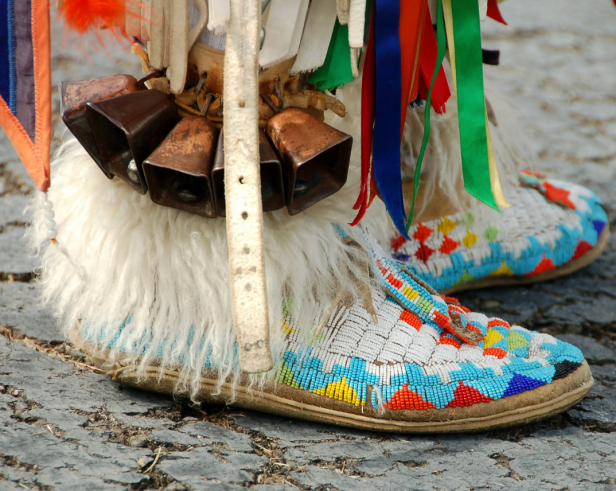Every Step a Prayer
For Sunday, 25 October 2020: Matthew 22:34-46
34 When the Pharisees heard that [Jesus] had silenced the Sadducees, they gathered together, 35 and one of them, a lawyer, asked him a question to test him. 36 “Teacher, which commandment in the law is the greatest?” 37 He said to him, “‘You shall love the Lord your God with all your heart, and with all your soul, and with all your mind.’ 38 This is the greatest and first commandment. 39 And a second is like it: ‘You shall love your neighbor as yourself.’ 40 On these two commandments hang all the law and the prophets.”
41 Now while the Pharisees were gathered together, Jesus asked them this question: 42 “What do you think of the Messiah? Whose son is he?” They said to him, “The son of David.” 43 He said to them, “How is it then that David by the Spirit calls him Lord, saying, 44 ‘The Lord said to my Lord, “Sit at my right hand, until I put your enemies under your feet”’? 45 If David thus calls him Lord, how can he be his son?” 46 No one was able to give him an answer, nor from that day did anyone dare to ask him any more questions.

The rabbis of old held that there were 613 commandments in the Hebrew Scriptures. In response to a question about which is the greatest, Jesus recalls two: “Hear, O Israel: The LORD is our God, the LORD alone. You shall love the LORD your God with all your heart, and with all your soul, and with all your might” (Deuteronomy 6:4-5); and “You shall not take vengeance or bear a grudge against any of your people, but you shall love your neighbor as yourself: I am the LORD” (Leviticus 19:18). He goes on to say that these two commandments form the basis for all the teaching of the Old Testament.
Jesus then turns the table on his interlocutors asking them a question, a riddle of sorts, about the Messiah. The Jews had long anticipated the coming of a Messiah to deliver their nation. He was prophesied to be a descendant of King David: “The days are surely coming, says the LORD, when I will raise up for David a righteous Branch, and he shall reign as king and deal wisely, and shall execute justice and righteousness in the land” (Jeremiah 23:5). Jesus is referred to as “Son of David” no less than eight times in the Gospel of Matthew. In fact, his lineage is traced through Abraham and David as heirs of the messianic promises in the genealogy that begins the book. Clearly, the identification of Jesus as the promised Jewish Messiah is of critical importance in the Gospel of Matthew.
But not only the twelve tribes of Israel have looked forward to the coming of a messiah, other peoples have as well. In the Lakota/Dakota/Nakota tradition is told the story of White Buffalo Calf Woman, a holy person and messianic figure. At a time of great adversity, she brought to the people from Wakan Tanka, the Great Spirit, the sacred pipe. The pipe was to be used as a mode of prayer and communication between the people and the Creator. When her task was completed, she is said to have turned into a white buffalo calf and departed. To this day, the rare birth of a white buffalo is viewed by many as a reminder of her visit to the people and a messianic symbol. Black Elk, Oglala Lakota visionary, healer, and candidate for sainthood in the Roman Catholic Church, told this and other sacred stories. Speaking about the pipe and prayer, Black Elk said: “The Great Spirit is everywhere; he hears whatever is in our minds and our hearts, and it is not necessary to speak to the Holy One in a loud voice. … Every step that is taken upon the earth should be as a prayer.”
Today’s Gospel reading presents the hopeful possibility of following Jesus on the path leading to God. His riddle is posed to lead us to the awareness that Jesus is not only the Son of David, but also the Son of God, the Messiah sent to deliver not only Israel but people from every tribe, language, and nation. Jesus not only saves us from sin and death, but he also meets us in times of great adversity showing us how to live by loving God and by loving our neighbors. With Black Elk, we remember that every step we take on the earth should be as a prayer.


